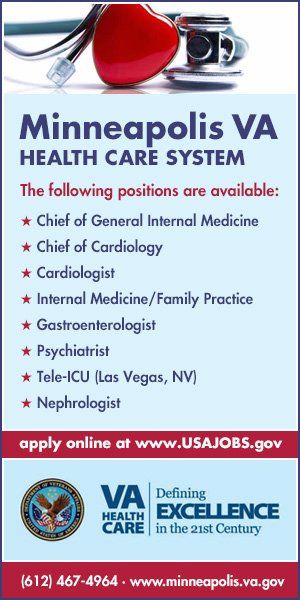rior authorization is a process almost every physician has dealt with, and often it is not a pleasant encounter. When a health insurance company must approve or deny a service or item before it is provided to the patient, there are many fundamental problems. Prior authorization is supposed to be a method of regulating health care costs and making sure that services are medically necessary. But it often creates unnecessary burdens on health care providers and barriers to important and timely care for patients.
cover story two
Prior Authorization
The time is now for reform
By ERIN HARTUNG, JD
Cancer Legal Care’s ICARE program (Insurance Claim Advocacy and Resolution) helps clients overcome denials and other hurdles with their health insurance. About one quarter of our cases deal with prior authorization in some form, whether it be delays in processing a prior authorization request, prior authorization denial for medical necessity or post-service denial of a claim for lack of prior authorization. In doing this work, I have seen firsthand the negative impact that prior authorizations can have on patients’ health and overall wellbeing.
According to a 2021 physician survey conducted by the American Medical Association, 93% of physicians reported that prior authorizations caused a delay in clients’ access to necessary care. 91% reported that the prior authorization process resulted in a somewhat or significant negative impact on patent clinical outcomes (with 34% reporting that prior authorizations resulted in a serious adverse event for a patient under their care). 82% reported that the prior authorization process sometimes led to a client abandoning treatment. The survey also found that 88% of surveyed physicians described prior authorization-associated burdens as high or extremely high. While my personal experience with prior authorizations is in the oncology world, the burdens of prior authorization are not limited to this one field. Given the common services and items that usually require prior authorization—such as prescriptions, surgical procedures, medical equipment, inpatient hospital admissions, physical therapy, rehab, CT scans and PET scans—nearly every health care specialty deals with prior authorizations and the issues involved with them.
A Mountain of Burden
The prior authorization process creates a mountain of administrative burden on physician practices. The 2021 AMA physician survey found that physicians spend an average of 13 hours per week completing prior authorizations. This takes valuable time away from direct patient care and requires additional administrative costs to fund staff to manage the prior authorization process.
93% of physicians reported that prior authorizations caused a delay in clients’ access to necessary care.
At Cancer Legal Care, we spend an average of almost 9.5 hours per case when trying to resolve a prior authorization-related issue. This is because resolution requires us to coordinate authorization paperwork with our client and obtain a copy of their health plan (which can be a task full of delays in itself) and oftentimes, copies of their medical records and other information. We spend an inordinate amount of time on hold in efforts to communicate with insurance and health care provider representatives directly. Additionally, a large amount of time is spent on preparing formal appeals and other communications as part of following up with insurance to make sure they received the claim and are processing it.
Delays caused by prior authorization processing issues and denials result in patients not getting the care they need when timing is critical and can create adverse outcomes. For example, I worked with a client whose insurance denied a prior authorization request for a radiation bead treatment. This led to a two-month appeal process, partially because the provider did not have the extra time to immediately prepare a full appeal, but mostly because the insurance company did not expedite the appeal review. During that two-month delay, my client’s cancer spread, requiring more chemotherapy before the originally-requested radiation bead treatment could begin. It is likely that the cancer’s spread would not have happened if not for the insurance delay. This caused my client immense mental distress knowing that something as arbitrary as an administrative delay was putting his life in jeopardy.
Many times, a person with cancer needs to start their treatment regimen quickly and does not have time to wait for a lengthy insurance approval process. Many, if not all, plans have provisions that provide for expedited prior authorization approval and an expedited appeal process. For example, a plan may state that if a treatment is needed to address a life threatening condition, the insurance company is required to issue an appeal decision within three days after receipt of the appeal. However, insurance company errors sometimes prevent a patient from accessing this expedited process.
The client previously discussed (whose insurance appeal caused a two-month delay in treatment) was set to start the second round of chemotherapy, but when he arrived at his appointment, he found out his insurance company hadn’t yet approved the prior authorization request for the chemotherapy drug. The insurance company representative explained that the prior authorization approval could take 15 days. The client didn’t have the luxury of waiting 15 days for approval; he needed to start treatment immediately. I explained this to the insurance representative and was told the client’s physician needed to contact the insurance company and provide verification of the life-threatening status. The physician then contacted the insurance company and requested the prior authorization expedited. However, the day after the physician’s request for an expedited authorization, the insurance company had not done so and the matter was still on track to be decided in 15 days. After once more explaining the client’s situation, I was transferred to the care management department and explained the situation yet again. It was only after speaking to a care management representative that the prior authorization was placed on an expedited track. This whole routine took a couple of hours on the phone on hold and speaking to representatives—in addition to the time and effort spent by the physician’s office. All this was required just to accomplish a simple process that should and could have been correctly processed when the prior authorization request was initially submitted.
Further Problems
Another problem occurs when the insurance company claims it did not receive a prior authorization request or appeal from the provider. This was the case for another client and their provider. I assisted them in attempting to get a prior authorization appeal processed by the client’s insurance. The provider had been trying for months to get prior authorization for a couple of treatment drugs in the hope of expanding the client’s quality of life. The insurance company not only denied the prior authorization request, but also confused the specifics of what the provider had appealed. The company claimed it had not received multiple appeal requests, despite the provider both mailing and successfully faxing the appeal. It took hours on the phone to coordinate and follow up with the insurance company to make sure the appeal documents were received and uploaded to the client’s account, being transferred to multiple different departments and finally making an impassioned and frustrated plea for the client’s wellbeing, before the issue was straightened out an the treatment drugs were approved.
This illustrates another hurdle involved with the prior authorization process—getting to the person at the insurance company who can accomplish what needs to be done. Dealing with an insurance company is far more successful when the right person with the company is handling the issue, but contacting such a person can be one of the more difficult things to do. Most of the time, the only contact number available is the insurance company’s customer service line (or perhaps a provider relations line, available to providers only). However, no two representatives are the same and some representatives are more or less helpful or knowledgeable than others. And some are more or less capable of identifying, or empowered to identify, available solutions to a particular issue and who within the company is best suited to achieve that solution. This reality turns calls with insurance company representatives into a game of chance where luck of the draw will determine whether or not you are connected with an employee who can truly assist in resolving an issue.
These procedural hurdles are separate and distinct from the possibility that an insurance company may still deny a prior authorization request on the basis of medical necessity. This type of denial means that the insurance company doesn’t believe that a requested treatment or service is necessary and/or safe for the client’s condition, despite the client’s physician believing that it is. Oftentimes, the initial denial is made by an insurance company employee who does not have medical qualifications related to a client’s condition and is simply making a surface-level determination based on the plain language of the insurance plan and underlying medical policy.
Physicians spend an average of 13 hours per week completing prior authorizations
Changing Prior Authorization
With all of the procedural hurdles that cause delays in prior authorization approvals, it begs the question- why do prior authorizations exist in the first place? If the duty of a heath care provider is to treat patients with the right type of care they need, why should a health plan act as a gatekeeper to those determinations in a way that is so demonstrably rife with negative consequences? How can we find ways to control health care costs that do not impede timely, medically appropriate care for patients? Answers to these questions require a large conversation with candid input from stakeholders across the board— patients, providers, and payers.
There is some progress being made in this area, however. Federal lawmakers are currently working on a bipartisan measure aimed at streamlining the prior authorization process for Medicare Advantage plans, with the intention to cut down on unnecessary denials and lessen the administrative burden placed on providers. The measure is called the Improving Seniors’ Timely Access to Care Act (H.R. 3173).
Representatives Ami Bera, Larry Bucshon, Suzan Del Bene and Mike Kelly introduced the bill, which has garnered support of over 500 organizations nationwide. The legislation was borne out of the representatives’ personal experiences and larger acknowledgment of the type of realities found in the 2021 AMA survey: the prior authorization process not only shifts too much of providers’ time away from patient care, but also creates delay to patient treatments that can result in adverse health consequences.
The legislation requires Medicare Advantage plans to establish an electronic prior authorization process (as opposed to relying on paper-based processes) and report to CMS on their use of prior authorization, as well as their rate of approvals and average response time. It also encourages Medicare Advantage plans to adopt prior authorization programs that adhere to evidence-based medical guidelines and requires the U.S. Department of Health & Human Services to establish a process for real-time decisions regarding services and items that are routinely approved. The House of Representatives passed the bill by unanimous vote on September 14, 2022, sending it on to the Senate for consideration, where it also has bipartisan support.
The Improving Seniors’ Timely Access to Care Act is a great approach to tackling some of the issues with prior authorizations, and if it passes into law, there is a good chance it will influence the way non-Medicare Advantage plans administer prior authorizations. However, the law will only apply to Medicare Advantage plans, and it is only a start to addressing prior authorization problems.
Short Term Solutions
At Cancer Legal Care, we are fortunate enough to have experienced staff dedicated to helping clients resolve their prior authorization issues, which can be difficult, if not impossible, for patients to overcome on their own. We have been able to collaborate with physicians to use health plan language and medical evidence to convince insurance companies a requested treatment or drug is medically necessary and, in other cases, why an off-label drug is appropriate to use in a patient’s particular situation. We have navigated through insurance company communication channels to get prior authorization requests on the correct track to be processed in a timely fashion. Unless and until larger systemic solutions are put in place, this sort of work will remain necessary to protect patient health.
Health care providers could implement much of this same work by designating dedicated employees within a care coordination team to handle the prior authorization process as needed. These employees would stay up-to-date on what services require prior authorization approval from each contracted insurance company and be responsible for submitting any required prior authorizations. They would also follow up with insurance companies to make sure insurance has not only received and are processing prior authorization requests but are processing them within the required timeframes. The employees would also pull required paperwork and medical records and coordinate with doctors to prepare medical necessity explanations for use in initial prior authorization requests and appeals. In addition, the employees could prepare reports for managerial staff regarding trends and proposed solutions to common systemic issues they encountered in their prior authorization work. The provider could use such reports to negotiate solution-based changes with insurance companies at the time of network contract renewal. In the case of oncology practices, they could contact Cancer Legal Care for solutions tailored to their practice.
Patient wellbeing and provider operations demand that the prior authorization system must change. The burden on healthcare providers is unmanageable and unsustainable. It is unacceptable that any patient should face negative health outcomes because their insurance does not timely provide benefits for a service which a qualified physician believes is necessary. Patients in our country should not face such bureaucratic obstacles to access to necessary and timely care.
As it stands, insurance companies do not have much incentive to implement systemic changes to the nature of prior authorizations and the way the prior authorization process operates. They also have strong lobbying interests in state and federal legislatures to fight against any changes which may be forced upon them. So changing the world of prior authorizations is an uphill battle. Change may be possible through provider negotiations with insurance companies over network contracts. On the larger scale, it is going to take many diverse voices working in concert along with determination, perseverance, and above all, the further elevation into public discourse of compelling reasons why changes need to happen.
Health care providers can use their experience to push for change. One action providers can take is contacting their elected officials and voicing support for the Improving Seniors’ Timely Access to Care Act. Additionally, providers can share stories about prior authorization hurdles with legislators, publications and journalists. The issues surrounding insurance coverage, including the prior authorization process, are ripe for change and improvement; the more attention that is drawn to it, the better.
Another way to make a positive impact is to share tips and successful strategies with other providers across specialties. For example, discussing methods that have helped your practice overcome prior authorization hurdles more quickly and efficiently, explaining how you have managed to avoid pitfalls. Create collaborative groups to share examples of your prior authorization struggles with the public and lawmakers and to push for change. As Paul Wellstone said, “We all do better when we all do better.”
Erin Hartung, JD, is senior staff attorney and manager of the ICARE program (Insurance Claim Advocacy and Resolution) at Cancer Legal Care. You can learn more by visiting their website at cancerlegalcare.org.
MORE STORIES IN THIS ISSUE
cover story one
Mending a Racket: Empower-Patient Accounts
By ROBERT KOSHNICK, MD, FAAFP
cover story two
Prior Authorization: The time is now for reform



















